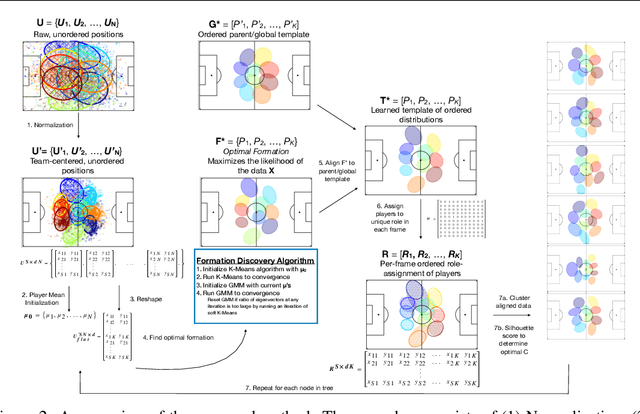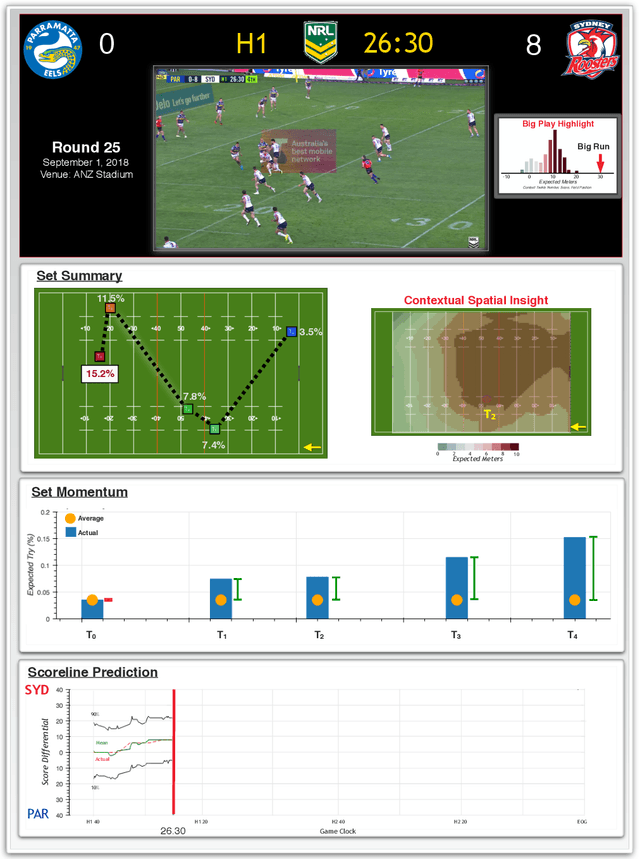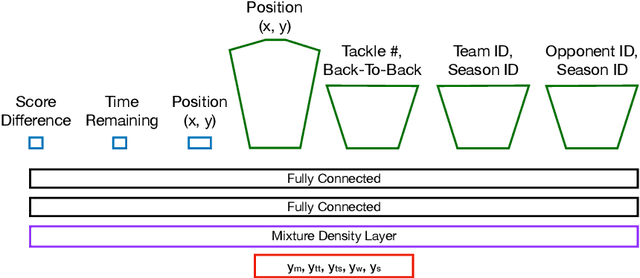Matthew Holbrook
Improved Structural Discovery and Representation Learning of Multi-Agent Data
Dec 30, 2019



Abstract:Central to all machine learning algorithms is data representation. For multi-agent systems, selecting a representation which adequately captures the interactions among agents is challenging due to the latent group structure which tends to vary depending on context. However, in multi-agent systems with strong group structure, we can simultaneously learn this structure and map a set of agents to a consistently ordered representation for further learning. In this paper, we present a dynamic alignment method which provides a robust ordering of structured multi-agent data enabling representation learning to occur in a fraction of the time of previous methods. We demonstrate the value of this approach using a large amount of soccer tracking data from a professional league.
Rugby-Bot: Utilizing Multi-Task Learning & Fine-Grained Features for Rugby League Analysis
Oct 16, 2019



Abstract:Sporting events are extremely complex and require a multitude of metrics to accurate describe the event. When making multiple predictions, one should make them from a single source to keep consistency across the predictions. We present a multi-task learning method of generating multiple predictions for analysis via a single prediction source. To enable this approach, we utilize a fine-grain representation using fine-grain spatial data using a wide-and-deep learning approach. Additionally, our approach can predict distributions rather than single point values. We highlighted the utility of our approach on the sport of Rugby League and call our prediction engine "Rugby-Bot".
 Add to Chrome
Add to Chrome Add to Firefox
Add to Firefox Add to Edge
Add to Edge